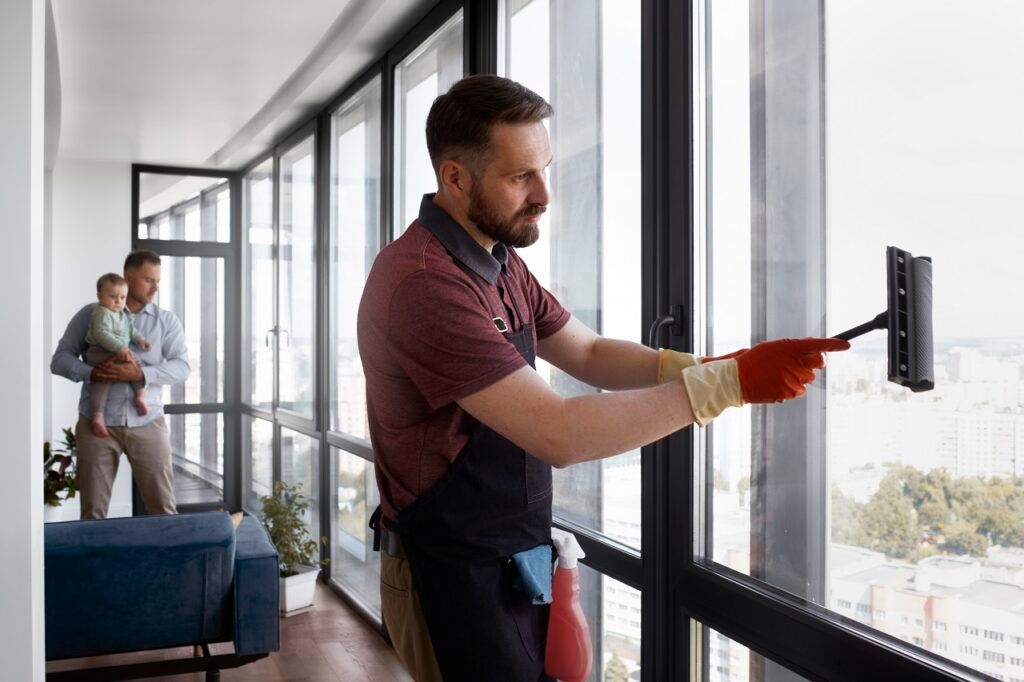Home efficiency is evolving beyond just adding insulation or upgrading appliances. Window tint professionals can attest to the growing popularity of window tinting as a comprehensive approach to enhancing your home’s energy efficiency and privacy. This cost-effective solution offers many benefits, from energy cost savings to interior design enhancements. Let’s explore how window tinting can be crucial in creating more energy-efficient and comfortable living environments.
How Window Tinting Contributes to Energy Efficiency
As one of the most powerful tools to combat heat gain and loss, a residential window tint Charlotte, NC, can upgrade your windows to work in favor of your energy bill. Applying a thin film lets your windows reflect solar heat in summer and keep warm air inside during winter. This dual action makes a significant impact on your home’s energy efficiency. The U.S. Department of Energy highlights that specific window tints can reduce the heat gain from the sun by up to 70%, a testament to their efficacy. As a result, your heating, ventilation, and air conditioning system (HVAC) can operate more efficiently, which means a potential decrease in energy consumption and a boost to your indoor comfort levels.
Enhancing Privacy without Sacrificing Natural Light
Window tinting has evolved significantly over the years, offering varying degrees of opacity to meet privacy needs without obstructing the natural light that brightens your home. From lightly tinted films that offer a sheen of privacy to darker films that provide a near-mirror effect from the exterior, a range of options is suited to different preferences. Homeowners can enjoy sunlight streaming into their living spaces while preventing curious eyes from viewing inside. This delicate balance is especially valued in urban areas, where houses are often built near one another.
The Role of Window Tinting in UV Protection
Ultraviolet (UV) rays from the sun can penetrate through clear glass windows, posing risks to health and home interiors. Long-term exposure to UV rays can cause skin conditions and even contribute to the fading and deterioration of furniture, artwork, and fabrics. By installing window tints, which can block up to 99% of these harmful rays, homeowners can safeguard their health and extend the life of their interior belongings. The importance of this protective feature is to be noticed, as indicated by the U.S. Environmental Protection Agency, which underscores that ordinary glass does little to filter out UV radiation. Window tints emerge as an astute investment in personal and property health.
Aesthetic and Decorative Elements of Tinted Windows
Window tints can also serve an aesthetic purpose. The modern home continues to serve as a personal sanctuary and a canvas for self-expression. With various colors and shades, window films can be selected to complement a home’s external facade seamlessly. Tinted windows can intensify the property’s visual appeal by providing a sleek, uniform look. In addition to their functional benefits, these tints can become integral to a home’s exterior design theme, enhancing curb appeal and making a stylish statement.
Increase in Property Value After Window Tint Installation
Finding ways to increase property value is a common goal for homeowners, and window tinting can be an attractive feature for potential buyers. The installation of window tints can be viewed as an upgrade, much like a renovated kitchen or a well-maintained landscape. Quality window films suggest an energy-efficient home and convey a sense of privacy and upgraded aesthetics. Such improvements can ultimately reflect in the property’s market value, making it a prudent long-term investment well beyond the immediate comfort and savings.
Lifespan and Durability of Residential Window Films
The misconception that window tints are fragile additions to your home is quickly dispelled when considering the durability of modern window films. Crafted from high-quality materials, these films are designed to resist scratching, peeling, and bubbling. They can withstand the rigors of varied climates, from intense sun exposure to colder temperatures, without losing their integrity or appearance over time. With proper installation and occasional cleaning using the right products, these films can continue to perform for many years, making them a lasting solution for your home.
The Cost-Benefit Analysis of Installing Residential Window Tint
Homeowners considering window tinting must evaluate the initial cost against the long-term benefits. The upfront expense may seem considerable, but the overall value becomes apparent when factored against the potential energy cost savings and the added layer of protection for furnishings. Additionally, there’s an often-overlooked benefit in terms of comfort—the intangible yet invaluable aspect of living in a space that maintains a steady temperature without the constant hum of cooling or heating systems. Over time, these benefits combine to compensate for the initial investment and yield returns in monetary and quality-of-life dividends.
The Environmental Impact of Reduced Energy Consumption
A commitment to sustainability is increasingly important in today’s world. Window tinting stands out as an environment-friendly home improvement. By minimizing reliance on artificial heating and cooling, window films help reduce overall energy consumption. This reduction leads to fewer emissions from power plants, a smaller carbon footprint, and a positive contribution to combating climate change. Homeowners who prioritize green living can embrace window tinting as an eco-conscious choice that aligns with a dedication to protecting our planet for future generations.



